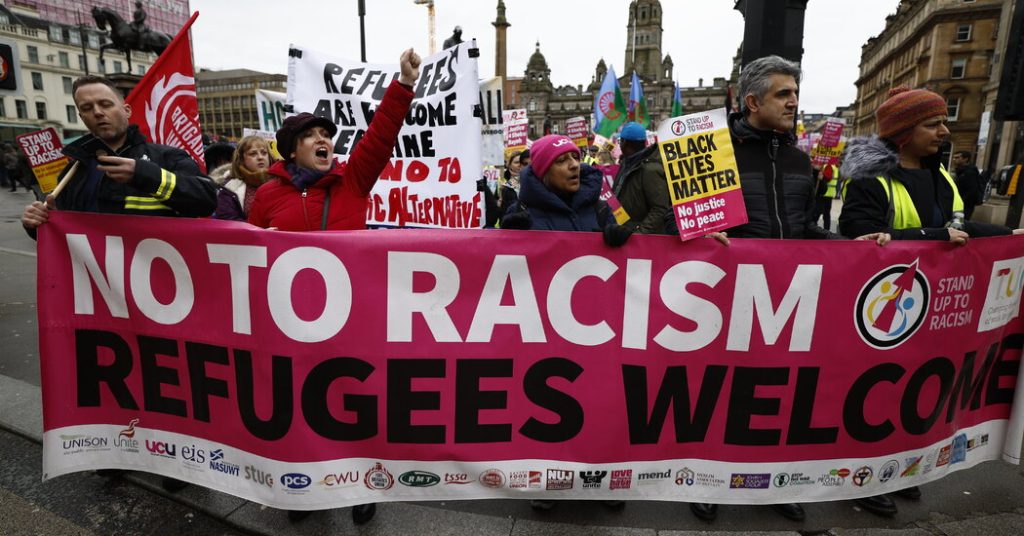The Hate Crimes and Public Order (Scotland) Act 2021, which went into effect on Monday in Scotland, aims to protect marginalized groups from threats and abuse through the creation of a new charge of “stirring up hatred.” The law criminalizes communication or behavior considered threatening, abusive, or insulting, with potential fines and prison sentences of up to seven years for offenders. The protected classes under the law include age, disability, religion, sexual orientation, and transgender identity, omitting racial hatred, which is already covered by existing legislation. However, the exclusion of women as a protected group has drawn criticism and calls for separate legislation to address misogyny.
The law has faced opposition from various groups, including author J.K. Rowling, who expressed concerns that it could be abused by activists and infringe on free speech. Rowling, who has been criticized for her comments on gender identity, pointed out the omission of women as a protected group and questioned the prioritization of the feelings of some individuals over the rights of women. The new law has received support from First Minister Humza Yousaf, who emphasized that the threshold for criminality is high and that the police and crown would determine whether a crime had been committed under the legislation.
The law was introduced following a 2018 recommendation to consolidate and update Scotland’s hate crime laws, culminating in the passage of the legislation by the Scottish Parliament in March 2021. Supporters of the bill argue that it is essential in combating harassment and protecting vulnerable individuals from physical, verbal, and online attacks. Scotland’s Minister for Victims and Community Safety, Siobhan Brown, hailed the legislation as a critical component of the government’s efforts to address harm caused by hate crimes. However, the law has faced criticism from skeptics, including the Scottish Conservative Party, who fear potential abuses and challenges in implementation, with concerns that individuals like Rowling could face police intervention for expressing reasonable opinions.
The debate surrounding the hate crimes law has raised questions about free speech, the protection of marginalized groups, and the balance between preventing hate speech and safeguarding individual liberties. Critics advocate for a cautious approach to ensure the legislation does not stifle legitimate discourse or unfairly punish individuals for expressing dissenting opinions. The issue of addressing misogyny within the law has also been a focal point, with a government-commissioned task force recommending the inclusion of protections for women in a separate bill. While there is support for extending safeguards to women similar to those in the hate crimes law, progress on enacting such legislation has been limited, with calls for the government to consider the task force’s recommendations.
In navigating the complexities of hate speech legislation, policymakers must strike a delicate balance between protecting vulnerable groups from harm and upholding the fundamental right to freedom of expression. Ensuring that the law is applied judiciously and in a manner consistent with democratic principles is essential to preempt any potential abuse or overreach. The debate surrounding the hate crimes law serves as a reminder of the nuanced challenges in addressing hate speech while safeguarding individual rights and promoting a diverse and inclusive society. By engaging in constructive dialogue and seeking common ground, stakeholders can work towards a framework that effectively combats hate while upholding the values of tolerance, respect, and equality for all individuals.


